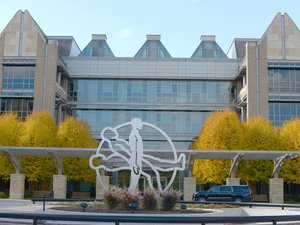The Department of Commerce has rolled out another $504 million in grants as part of a bid to boost critical and cutting-edge industries across the country — but Minnesota isn't one of the recipients.
On Tuesday, the U.S. Economic Development Administration announced 12 designated tech hubs to receive between $19 to $51 million for their respective regions. The grants came from the Tech Hubs program — part of the CHIPS Act passed by Congress in 2022 — which aims to identify potential tech hubs around the country outside of the typical tech epicenters such as Silicon Valley, Boston and New York and provide them with the funding they need to grow. The idea is to seed these hubs with federal dollars that can be used to leverage private-sector investment and snowball into larger growth.
Greater MSP and a consortium of big Minnesota employers sent a proposal for $75 million to get some of that funding. In the first phase of the program, 31 cities were designated with tech hub status. Minnesota was one of them, qualifying for the second phase to compete for funding, but its run ends here — at least for this pool of money.
RELATED: See a list of the regions awarded Tech Hub funding
The Tech Hubs program was authorized for $10 billion by Congress but has only been appropriated $541 million to date. It is unclear at this point what the next phase of the program would look like, especially without additional funding.
Matt Lewis of Greater MSP said the decision won't change the direction of MedTech 3.0 — Minnesota's initiative that focuses on building three areas of technology including medical technology, artificial intelligence and machine learning and advanced manufacturing.
"We've known for many months that the tech hubs program didn't have enough funding for all 31 tech hubs," Lewis said. "It would have been a nice boost, but it won't set us back with our planning."
Greater MSP submitted the pitch in February on behalf of a group of companies, colleges and government agencies. Members include the University of Minnesota, Minnesota State Colleges and Universities, Allina Health, Boston Scientific Corp., Medtronic, Mayo Clinic, Medical Alley Association, the Office of the Governor, Gener8tor and others.
Lewis said while there are some areas of their initiative that they won't be able to launch without funding, it will rely heavily on C-suite members of its consortium to champion three parts of its proposal and search for funding elsewhere.
The initial phase of MedTech 3.0 will focus on how Minnesota incubates startups, provides access to healthcare data between health care providers and develop and attract tech talent.
Organizations within the consortium have already committed more than $65 million to the initiative with about $32 million from industry partners, $11 million from government organizations, $5 million from universities and $5 million from venture capital firms.








